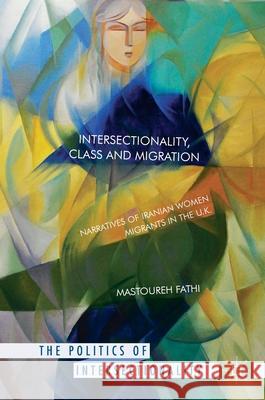Intersectionality, Class and Migration: Narratives of Iranian Women Migrants in the U.K. » książka
topmenu
Intersectionality, Class and Migration: Narratives of Iranian Women Migrants in the U.K.
ISBN-13: 9781137525291 / Angielski / Twarda / 2017 / 193 str.
Intersectionality, Class and Migration: Narratives of Iranian Women Migrants in the U.K.
ISBN-13: 9781137525291 / Angielski / Twarda / 2017 / 193 str.
cena 342,14
(netto: 325,85 VAT: 5%)
Najniższa cena z 30 dni: 327,68
(netto: 325,85 VAT: 5%)
Najniższa cena z 30 dni: 327,68
Termin realizacji zamówienia:
ok. 22 dni roboczych
Bez gwarancji dostawy przed świętami
ok. 22 dni roboczych
Bez gwarancji dostawy przed świętami
Darmowa dostawa!
This book offers critical analysis of everyday narratives of Iranian middle class migrants who use their social class and careers to "fit in" with British society.











